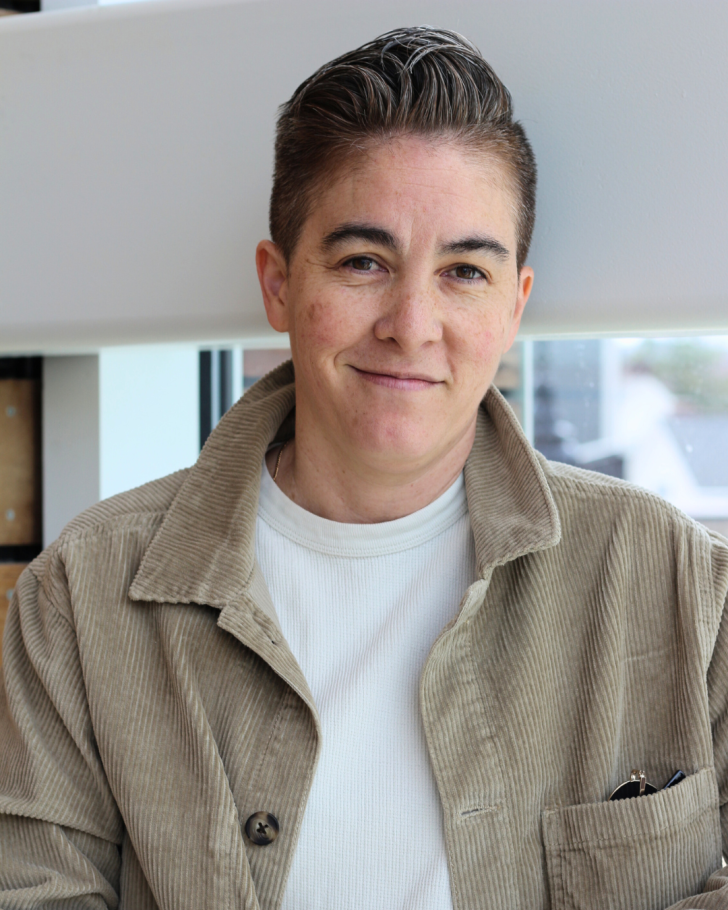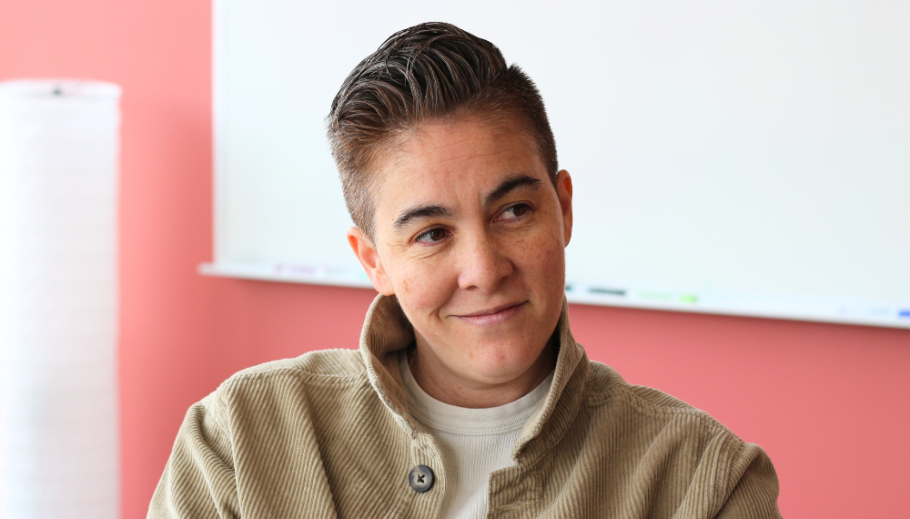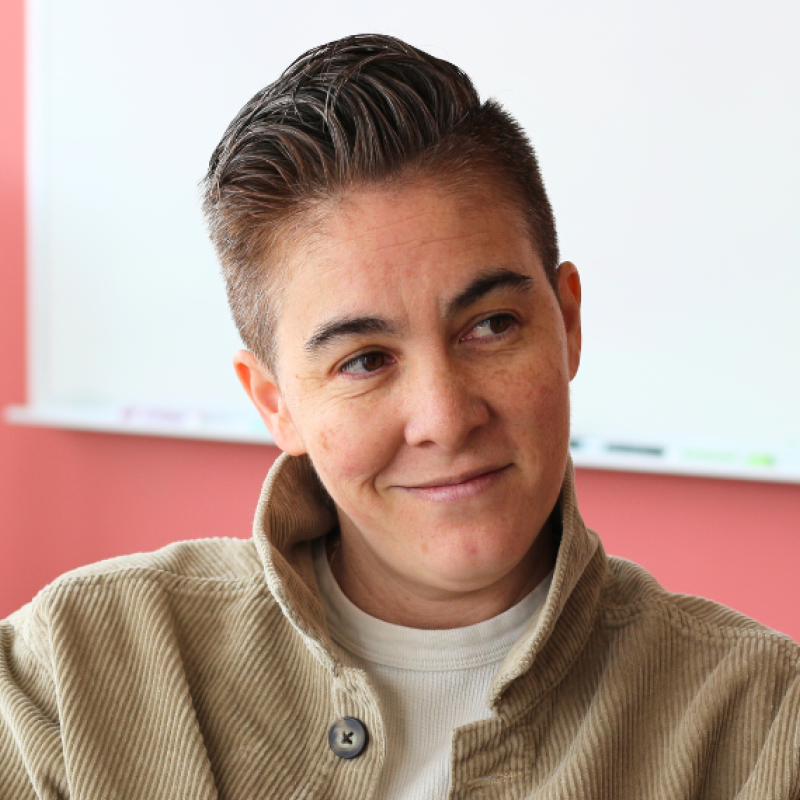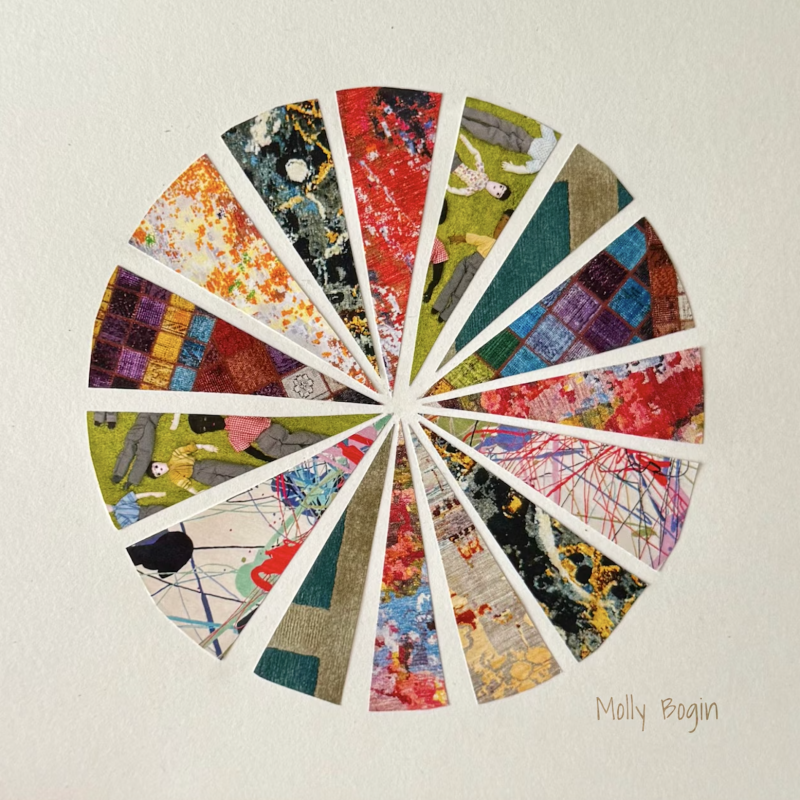What can happen in a room full of students waving red flags?
Sex and relationships are messy complex parts of life, but combining a real life Am I The Asshole (AITA) panel with knowledgeable mental health experts gave Smith undergrads an easy way to get awkward questions answered and for mental health tools to flow further into the community than the therapy room. The panel this spring also allowed Yvonne Kawamura, M.S.W. ’25 the ability to combine multiple aspects of her practicum placement and to reflect on her work at the Schacht Center at Smith.

Planned collectively–but originated and spearheaded by Director of Wellness Sunny Windorski A.B. ’20–the panel happened in spring 2025 as a place for students to anonymously ask clinicians as well as a residential life advisor juicy questions around sex, relationships and life. Other panelists included Greenlee Brown, M.S.W. ’21 staff therapist, and Mary Inge, residential director of Ivy Neighborhood. Here’s how it worked: Questions were submitted beforehand and projected above the panelists’ heads. They wrote their answers on small whiteboards (NTA = not the asshole, YTA = you’re the asshole, NAH = no assholes here, etc.) and held their boards up at the same time, before discussing their reasoning.
“By talking it out, we were also modeling what it means to communicate about difficult things- modeling what talking about different perspectives can look like, not simply being in a reactive position.”
The panel answered many uncomfortable questions in front of a rapt, giggling audience, occasionally waving red flags and clapping. One student had asked if it’s okay to break up with their boyfriend if they’ve never had an orgasm, to which the panel said yes, “but maybe talk about it first”.
Kawamura said community mental health engagement has a wide impact that she appreciates. “It’s a brilliant way to bring mental health talk, especially around relationships and sex, to the students—like Sex in the Dark. It can be so effective because not everyone is coming to Schacht. We don’t have the capacity… it’s a cool way to reach people who can't be here.”
It was so well-received that students requested AITA panels every week. “Something that can be fun and impactful, how often do we get that kind of opportunity?” said Kawamura.
Kawamura didn’t realize before her practicum at Schacht Center how much she would enjoy working with 18-22 year olds, or how it would renew her desire to be a clinician, rather than her previous plan of focusing on policy or macro social work. She pointed out major themes that come up with students in session, like no matter how amazing a student is, they feel some version of imposter syndrome or they don’t feel worthy of love. College students are still building identity, which she says means they are still building their self worth, as they are moving from being children to being adults and having the time and distance to look at their families of origin. Kawamura admires that they are doing this while working within an incredibly competitive environment with a high workload.
Offering therapy to this age group can have a deeper impact, Kawamura says, which is part of why she loves it. Modeling secure attachment through the therapeutic relationship can be extremely pivotal at this point in development. “If you’re working with someone who is younger, there are less years of defenses and ego built up. What we do in these rooms can be immensely impactful. Bad mental health services experiences in college can cause lasting trauma.”

Working at Schacht inspired Kawamura because of the warmth and care she saw daily from colleagues who care about the students deeply, and are concerned when they’re dealing with heavy things like suicidal ideation, nervous breakdowns or friends who are struggling and aren’t ready to seek help. She said she finds it hopeful “to be in a room of really smart people who genuinely want to help the students.”
Having a supervisor who is a SSW alum (Noah Cochran, M.S.W. ’18) with the same theoretical anchors as she has means gaining more insight through supervision and having a shared language and understanding. “They offer excellent psychodynamic perspectives on my cases, and also completely understand the stress that we all can feel going through this intense program.”
Kawamura would love to see even more community mental health engagement as community care since Schacht isn’t able to support all the students’ needs, and it is possible for students to slip through the cracks. At the same time, Kawamura says that working with Smith undergrad students has given her more hope about the world, and she’s been pleasantly surprised to realize she can see herself doing college counseling for a long time.
“Getting to know these students has been a true gift in a globally-dark time. I have so much faith in the future because I believe so strongly in my clients. They are brilliant, funny, kind, and unbelievably strong and resilient. I really am honored to know them.”


